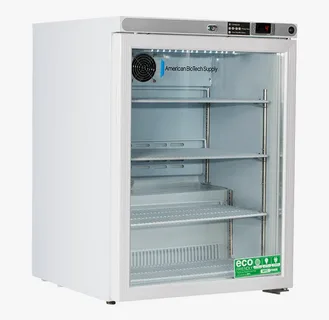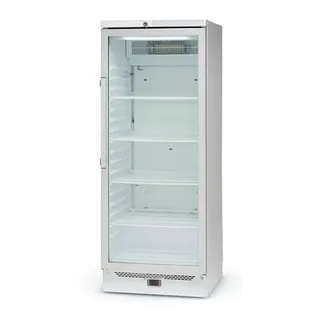Maintaining the proper temperature is crucial when storing vaccines to ensure their effectiveness and safety. This is where a reliable vaccine fridge comes into play. In this guide, we will explore the importance of quirks vaccine fridges, key features to look for, different types available, optimal temperature control, maintenance tips, top considerations when purchasing, and where to find high-quality vaccine fridges. Whether you are a healthcare provider, pharmacy, or laboratory, a suitable vaccine fridge is essential for optimal storage.
Understanding the Importance of Vaccine Fridges
Vaccine storage presents a unique challenge due to vaccines’ delicate nature. These biological substances can quickly become ineffective or harmful if exposed to improper temperatures. This underscores the critical role that vaccine fridges play in public health initiatives. Designed with precision, these specialized refrigeration units provide a controlled and stable temperature environment, a necessity for preserving the integrity of vaccines throughout their storage period.
Unlike conventional refrigeration solutions, vaccine fridges are equipped to operate within the stringent temperature parameters required by vaccine manufacturers and health authorities. This level of control helps prevent the degradation of vaccine efficacy that can result from exposure to temperature fluctuations. Consequently, investing in a purpose-built vaccine fridge is not merely a matter of adhering to regulatory standards but is fundamental to safeguarding the potency of vaccines.
This ensures that when vaccines are administered, they are as effective as intended, thereby upholding the public’s trust in healthcare services. The significance of vaccine fridges extends beyond mere compliance; it is about ensuring vaccination programmers’ success and communities’ health worldwide.
Key Features to Look for in a Vaccine Fridge
Selecting the correct vaccine fridge is imperative for any healthcare setting, and there are vital features to consider to ensure you are making the right choice. Firstly, the precision of temperature control is paramount. The vaccine fridge must maintain a consistent temperature within the recommended range, typically two °C to 8°C for refrigerated vaccines, without fluctuating. Alarm systems are another crucial feature; these should alert staff immediately to any deviation from the set temperature range, allowing for swift action to prevent vaccine spoilage. Energy efficiency is an aspect that should be considered.
An energy-efficient fridge not only reduces operational costs but also contributes to environmental sustainability. The storage capacity of the vaccine fridge must align with your facility’s needs, considering both current and future vaccine storage requirements. This includes evaluating the internal layout for easy access to stored vaccines, which can significantly streamline the vaccination process.
Ease of access is facilitated by features such as transparent digital displays for monitoring temperature without opening the door and glass doors for quick visual checks. Additionally, the vaccine fridge should have a robust construction to ensure durability and reliability over time. Lockable doors to secure vaccine inventory are advisable, particularly in settings with high footfall or varying staff access. In summary, these essential features should guide the selection of a vaccine fridge. They guarantee the safe and efficient storage of vaccines, ultimately supporting the overarching goal of maintaining public health.
Exploring the Different Types of Vaccine Fridges
Navigating the array of vaccine fridges on the market can be daunting, but understanding the distinct categories available simplifies selection. Compact countertop models are ideal for facilities with limited space or lower vaccine storage demands. These units are especially beneficial in small clinics or private practices where space efficiency is paramount. On the other hand, under-counter fridges offer a seamless fit into existing cabinetry, providing a practical solution without compromising floor space, thus maintaining the workflow of busier environments like pharmacies.
Larger upright models are the preferred choice for organizations requiring substantial storage capacity. These fridges facilitate organized storage and easy access to a high volume of vaccines, making them suitable for hospitals or public health facilities that manage extensive vaccination programmers. Chest freezers are designed for long-term storage, offering optimal temperature stability and reduced energy consumption due to their superior insulation. However, the layout of chest freezers may restrict quick access to vaccines, making inventory management a critical consideration.
It’s essential to weigh the advantages and limitations of each type against your specific storage needs, space constraints, and the volume of vaccine throughput. By doing so, you can identify the most appropriate vaccine fridge type that aligns with your operational requirements and contributes to the efficiency of your vaccine management protocol.
Optimal Temperature Control and Monitoring
Achieving the pinnacle of vaccine preservation hinges on stringent temperature regulation within the confines of the vaccine fridge. A pivotal component of these specialized units is their advanced temperature monitoring systems, designed to offer real-time insights and ensure vaccines are kept within their critical temperature thresholds. Sophisticated vaccine refrigerators are often equipped with integrated digital displays, facilitating immediate visibility of the internal temperature. This feature is essential for healthcare professionals to verify that the storage conditions are consistently maintained within the optimal range for vaccine viability, typically between 2°C and 8°C.
Moreover, contemporary vaccine fridges incorporate alarm mechanisms that play a crucial role in safeguarding vaccine integrity. These alarms are activated in response to any deviation from the designated temperature parameters, signaling the need for urgent intervention to rectify potential issues. This early warning system is indispensable in preventing the degradation of vaccine efficacy due to temperature excursions.
Additionally, specific models offer enhanced functionality with built-in temperature logging capabilities. This allows for continuous temperature data recording, providing an invaluable audit trail for compliance purposes and ensuring adherence to rigorous healthcare regulations. By meticulously monitoring and controlling the temperature environment within the vaccine fridge, healthcare facilities can uphold the highest standards of vaccine storage, contributing significantly to the efficacy of vaccination programmers.
 The Role of Maintenance in Ensuring Fridge Efficiency
The Role of Maintenance in Ensuring Fridge Efficiency
Maintaining the efficacy of a vaccine fridge extends beyond simple daily operation; it encompasses a comprehensive regimen of preventative care and routine checks to safeguard its operational integrity. Key to this is the regular de-dusting of the condenser coils, which, if neglected, can lead to decreased cooling efficiency and increased energy consumption. The cleanliness of the fridge’s interior should not be overlooked; spills and contaminants can affect the unit’s performance and potentially compromise vaccine storage conditions.
Inspecting the door seals (or gaskets) periodically for any signs of wear or damage is equally important. Compromised seals can allow cold air to escape, making the fridge work harder to maintain the required temperature and thus reducing its overall lifespan. The temperature monitoring system should be calibrated according to the recommendations provided by the manufacturer or regulatory bodies. This ensures that the displayed temperature accurately reflects the actual internal environment, allowing for precise adjustments and peace of mind.
Implementing a scheduled maintenance plan can preemptively identify potential issues before they escalate into critical failures. Such a proactive approach contributes to the reliable performance of the vaccine fridge and supports the continuity of vaccination services by minimizing the risk of unexpected downtimes. In essence, diligent maintenance is a cornerstone in the lifecycle of a vaccine fridge, instrumental in ensuring that it remains a bastion of vaccine integrity and efficacy.
Top Considerations When Purchasing a Quirks Vaccine Fridge
When purchasing a quirks vaccine fridge, several pivotal considerations must be considered to ensure you select a unit that perfectly aligns with your requirements. Firstly, assess the vaccine storage capacity you require, taking into account both your immediate and projected future needs. A too-small fridge may quickly become overwhelmed, while an overly large-unit could prove inefficient and costly.
Next, evaluate the features that enhance usability and reliability, such as adjustable shelving, digital temperature display, and automatic defrost function. A robust alarm system capable of alerting you to temperature excursions or power failures is essential for maintaining the integrity of the vaccines. Consideration of the vaccine fridge’s energy efficiency is also crucial; a model that optimizes power consumption can significantly save operational costs over its lifespan.
Additionally, the warranty and after-sales support the manufacturer or supplier provides should not be underestimated. A comprehensive warranty can offer peace of mind, while reliable customer support ensures assistance is at hand should any issues arise with your vaccine fridge. Finally, the brand’s reputation and feedback from existing users can provide invaluable insights into the performance and reliability of the vaccine fridge, guiding you towards making an informed decision that best suits your specific storage needs.
Where to Find High-Quality Vaccine Fridges?
Identifying a reputable source for vaccine fridges is crucial for securing equipment that meets regulatory standards and your specific storage needs. Trusted suppliers, renowned for their commitment to quality, offer an extensive catalogue of vaccine refrigeration solutions tailored to various healthcare environments. Organizations such as Quirks exemplify this, providing a range of purpose-built vaccine fridges that cater to the rigorous demands of vaccine storage. Their offerings encompass models suitable for different scales of operation, from small clinics to extensive healthcare facilities, ensuring optimal conditions for vaccine preservation.
Moreover, these suppliers often provide comprehensive after-sales support, including maintenance and repair services, which is pivotal for maintaining the fridge’s performance over its lifespan. Engaging with suppliers with positive testimonials and a proven track record in the industry is advisable. This not only assures the quality of the product but also guarantees that you have access to expert advice when selecting the suitable vaccine fridge for your facility. Additionally, exploring online forums and healthcare professional networks can yield recommendations and insights into the best places to purchase high-quality vaccine refrigeration solutions.
Conclusion
Selecting the appropriate vaccine fridge is a pivotal decision for any healthcare setting, pharmacy, or laboratory. It involves careful consideration of numerous factors including, but not limited to, the specific requirements of vaccine storage, such as optimal temperature ranges and the volume of vaccines to be stored. This ensures not only compliance with regulatory standards but also plays a significant role in the effectiveness of vaccination programmers. The choice of a vaccine fridge should thus be guided by a thorough understanding of the features that contribute to the safe and efficient storage of vaccines.
FAQs
Q: How frequently is calibration required for a quirks vaccine fridge?
A: Calibration of quirks vaccine fridges should be conducted annually or in accordance with the guidelines set out by the fridge manufacturer to ensure the accuracy of temperature monitoring. Regular calibration is critical for maintaining the vaccine’s efficacy by ensuring that storage conditions remain within the required temperature ranges.
Q: Is it possible to utilize a domestic fridge for storing vaccines?
A: Utilizing a domestic fridge for storing vaccines is not recommended. Domestic fridges lack the necessary precision in temperature control and monitoring features essential for vaccine storage. They are prone to temperature fluctuations that can compromise vaccine integrity. It is imperative to invest in a specialized vaccine fridge designed to meet the stringent requirements for vaccine storage.
Q: What steps should be taken if the vaccine fridge’s temperature alarm is triggered?
A: Should the temperature alarm of your vaccine fridge sound, promptly verify the current temperature reading and ascertain the cause of the alarm. Immediate actions might include adjusting the temperature settings or checking for a power outage. If the issue persists or if you’re unsure of the corrective steps to take, seek assistance from the fridge’s manufacturer or technical support team. Timely response to temperature alarms is crucial to prevent compromising the stored vaccines.
| Other Good Articles to Read |
| niche blogs connect |
| blogs 97 |
| Blog Stitution |
| blogs unplugged |
| blogs cotch rouge |
| blog signatr |
| blog sintonias |
| blog zilla |
| consumer forums |
| finance forums |
| g blogs |
| too blog |
| Related Business Listings |
| Contact Directory |
| Local Business Profiles |



